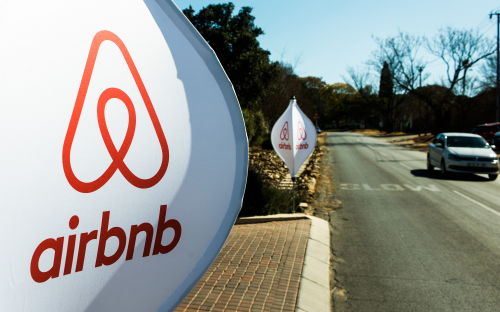Uber, the disruptive taxi-hailing app and the movement’s poster boy, is increasingly capturing the imagination of MBAs.
“People are excited by the sharing economy,” says Elspeth Rollert, an NYU Stern MBA who works as marketing manager for Uber in New York. “I wanted to play a part in shaping its future.”
Asked whether Uber would still exist in 2050, 63% of MBAs responded favorably, compared with Instagram at 28%, Facebook at 51% and even the 147-year-old investment bank Goldman Sachs, at 52%.
“The sharing economy is here to stay,” says HEC Paris MBA graduate Vasilios Danias, who jumped at the chance to lead Uber’s expansion into Greece.
Valued at more than $60 billion, the company has upended the taxi market — but Vasilios does not think it will displace traditional business models altogether.
“Uber’s goal is not to revolutionize the taxi industry,” he says. “The aim is to make better use of vehicles in any city and to benefit consumers — both riders and drivers.”
Despite the soaring valuations of sharing economy start-ups like Didi Kuaidi and WeWork, 40% of MBAs surveyed put their motivation down to making a positive social impact, compared with the 27% who are driven by financial gain.
Loukas Tourkomanis, Airbnb’s Dublin-based vendor operations manager, is keen to be part of a company with a mission.
“I believe the sharing economy is changing the world for the better by democratizing the job market and enabling micro-entrepreneurs,” says Loukas, an MBA graduate from Georgetown’s McDonough School of Business.
Yet the disruptive nature of the sharing economy is evident in the global and sometimes violent backlash against Uber from cabbies in capital cities.
Regulation, too, is a big problem for sharing economy firms, with fears over passenger safety and the improper licensing of drivers a particular concern for the taxi apps. Uber’s operations have been suspended or banned in the US, Brazil, France, Germany, Australia, Thailand, India and China.
Janos Torok, however, a Budapest-based business development manager of long-distance lift sharing platform BlaBlaCar, founded by an INSEAD MBA, is positive about the company’s future.
“BlaBlaCar has a huge opportunity to become a widely-used, people-powered transportation network,” he says. “We have over 25 million members in 22 countries. But we have just scratched the surface.”
When he graduated with an MBA from the Richard J. Wehle School of Business in New York, Janos was eager to break into the sharing economy.
“I believe that there are plenty of resources available that we can share,” he says, adding: “The sharing economy is a people-powered system, which makes the world more connected and enables us to solve more problems.”
Ultimately, the business success of the sharing economy will depend on whether its companies, which have sky-high valuations, can make money.
Numbers leaked from internal documents in August last year suggest Uber is still running at a loss. For Airbnb, the home rentals site valued at about $25 billion, executives forecast $900 million in revenue this year alongside an operating loss of about $150 million, according to the Wall Street Journal.
Abhishek Garodia, Airbnb’s UK and Ireland partnerships manager, joined the company because he believes strongly in its concept. “It’s a really efficient way of doing things,” he says.
The London Business School MBA graduate thinks the company has a bright future.
“I think it’s definitely going to grow,” he says. “Since 2009 it’s been growing exponentially. We have 50 million users and almost two million homes on the site, in over 34,000 cities in 191 countries.”
In the short-term, sharing economy start-ups are sacrificing profits for fast growth. Such uncertainty has deterred a minority of MBAs.
Analua Donatella, an MBA student at the Frankfurt School of Finance and Management, has no interest in working in the sharing economy. “The lack of fixed income, clear promotion opportunities, job security and associated benefits are all strong demotivating factors,” she says.
For the majority, however, they are already a part of the movement. More than 80% of the MBAs surveyed by BusinessBecause participate in the sharing economy in some way. Most are willing to share services, cars, garages, parking spaces and offices.
For Scotty Weber, an MBA student at UCLA Anderson School of Management, this is “the new norm” for millennials, those born between the early 1980s and late 1990s.
“Millennials are defined by the sharing economy and, in turn, the sharing economy defines the millennial generation,” she says.
Student Reviews
Frankfurt School of Finance & Management
RECAPTHA :
f6
af
33
e1











